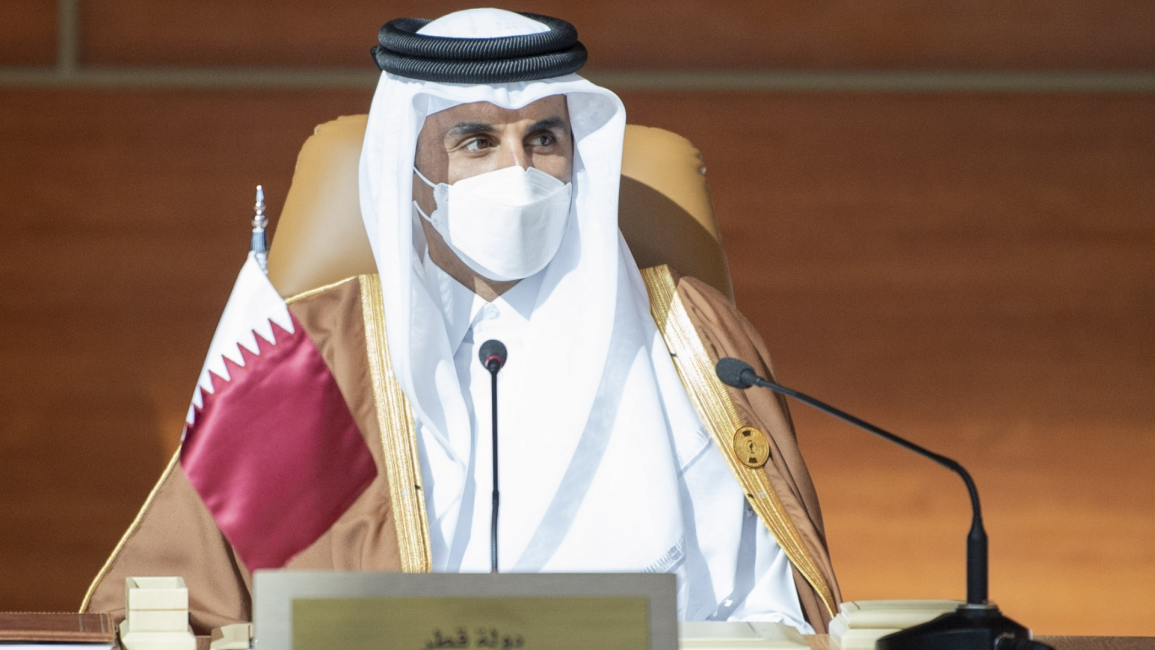Qatar 'prepared to mediate' between Iran, Saudi Arabia, Turkey for regional peace
Doha's now-neutral position between all parties involved in the recent disputes and its recent experience in mediating would allow it to possibly help resolve regional differences, the special envoy to the Qatari foreign minister, Mutlaq Al-Qahtani, suggested at a recent event.
"If these countries see that the State of Qatar has a role in this mediation, then it wold be possible to do so," Al-Qahtani said during an event organised by the Doha Institute for Graduate Studies.
"It is in everyone's interest that there be friendly relations between these countries, especially essential and major nations such as Saudi Arabia, Turkey and Iran," he added, pointing to his country’s recent efforts in resolving disputes.
“Mediation operations carried out by Qatar has given it experience in managing the [Gulf] crisis," he said.
Doha was able to "stop the bloodshed in Afghanistan and launch the Afghan dialogue as well as deal with crises - some which were publicly declared and others that weren't", he added.
The remarks by the Qatari official came almost a week after members of the Gulf Cooperation Council (GCC) announced the end of a three-year long dispute with a Saudi-UAE-led quartet, with the signing of the Al-Ula Declaration in Saudi Arabia.
The move finally lifted air, land and sea restrictions on Qatar and all parties involved - Saudi Arabia, the United Arab Emirates, Bahrain and Egypt - announced plans to restore formal ties with Doha.
Twitter Post
|
Riyadh and its allies in June 2017 enacted a blockade on Qatar that included closing airspace to Qatari planes over claims Doha backs Islamist groups and was too close to Iran. Qatar always denied the charges.
Also among the demands issued by the blockading quartet in 2017 was the closure of a Turkish military base in Qatar. The Al-Ula Declaration, signed at the annual GCC Summit in the Saudi kingdom, marked the end of the three-year dispute without any of the 13 demands being met.
Shortly following the historic end to the GCC crisis, Qatar Foreign Minister Sheikh Mohammed bin Abdulrahman Al-Thani said Doha's relations with Iran and Turkey will not be affected by its recent reconciliation agreement with the blockading states.
"Bilateral relationships are mainly driven by a sovereign decision of the country... [and] the national interest," he said in an interview with the financial daily.
"So there is no effect on our relationship with any other country."
Days later, the UAE's Minister of State for Foreign Affairs Anwar Gargash said Abu Dhabi wants to normalise relations with Turkey and agree to mutual respect for sovereignty after a bitter public row between the two countries.
Meanwhile, Iran's foreign ministry on Monday welcomed the GCC reconciliation and vowed to "embrace" Arab states when and if they decide "to correct their wrong course and awaken to the realities of the region".
Tehran is prepared to open a new page with Saudi Arabia and the UAE on the condition they "change their behaviour", Iranian Foreign Ministry Spokesman Saeed Khatib Zadeh said.
"As soon as Kuwait announced developments to solve issues in the Gulf, we welcomed that. We remain optimistic and hope a path has been found to achieve regional stability," he added.
Follow us on Facebook, Twitter and Instagram to stay connected



